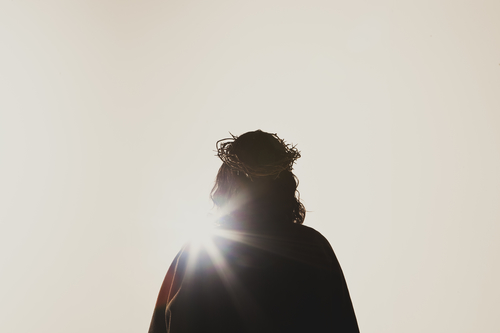by Bill Carroll
The Israelites said to Moses and Aaron, “If only we had died by the hand of the Lord in the land of Egypt, when we sat by the fleshpots and ate our fill of bread; for you have brought us out into this wilderness to kill this whole assembly with hunger.” (Exodus 16:3)
We are about to enter that portion of the lectionary where we hear various versions of Jesus telling us that he is the Bread of Life, or the living Bread who came down from heaven. The sixth chapter of John contains most of the Fourth Gospel’s material about the Holy Eucharist (The Last Supper account, in chapter 13, is focused instead on the Footwashing. It is possible to read some portions of John 6 in non-Eucharistic ways. A good, balanced approach to this chapter, which figured in Reformation debates, is advocated by Raymond Brown, who admits both readings, one or the other coming to the fore in different verses.) But the backdrop, as is clear both from the lectionary and from the text of John itself, is the story of the manna, the bread from heaven which God gave the People of Israel during their wilderness journey.
Exodus 16:3, cited above, makes it clear that the People asked for this food out of their anxiety. Our journey out of bondage into freedom often makes us anxious. As we move toward the Promised Land, we find that we have sometimes fallen in love with those things that hold us down and harm us. We find ourselves longing for the false and easy security promised by Pharaoh and his fleshpots. Better three square meals a day in slavery than the risky journey into freedom. Or so the world’s false logic goes.
It reminds me of the anxiety that Red, the Morgan Freeman character in The Shawshank Redemption, has about the possibility of getting out of prison after a long sentence. In the original Stephen King novella, in particular, Red is not sure that he will ever even so much as be able to go to the bathroom as a free man, without a fixed schedule and a guard to tell him it’s time.
How many of us hold back from making needed changes in our personal lives because of the fear of change? How do fear and anxiety hold us back as a Church and a Society? How do they hold back our local congregations and dioceses from embracing needed change as we try to be faithful to God’s mission in our context? What are we afraid to face? What losses are we afraid to acknowledge and grieve? Where do we prefer well-worn paths to the risks of freedom? Where are we afraid to speak truth to power?
The Good News is that we have a Savior who meets us where we are—who is willing to be with us and accompany us through our wilderness places—who is willing to give us our “daily bread,” his own Body and Blood to sustain us on our journey into freedom. Jesus is willing to join us in the places of temptation and fear, without giving in to them. He is willing to give us assurance and hope, as old certainties pass away. He gives us courage to stand up for what is right, and all the little ones he loves.
Whenever we are tempted to shrink back from the risks of life, it’s important to remember the presence of Jesus with us. With Jesus at our side we recover our sense of joy and adventure. Even if we fail and die in the world’s terms, Jesus assures us we will come to share in his victory over sin and death. Whenever we are tempted to focus on success at the expense of following Jesus, we can be sure we’ve made a wrong turn.
The world behind me. The cross before me.
The world behind me. The cross before me.
I have decided to follow Jesus.
No turning back. No turning back.
The Rev. Canon Bill Carroll serves as Canon for Clergy Transitions and Congregational Life in the Diocese of Oklahoma. He has served as a parish priest in Oklahoma, as a parish priest and college chaplain in Southern Ohio, and as a member of a seminary faculty. In 2005, he earned his Ph.D. in Christian theology from the University of Chicago Divinity School.
image purchased from lightstock.com

